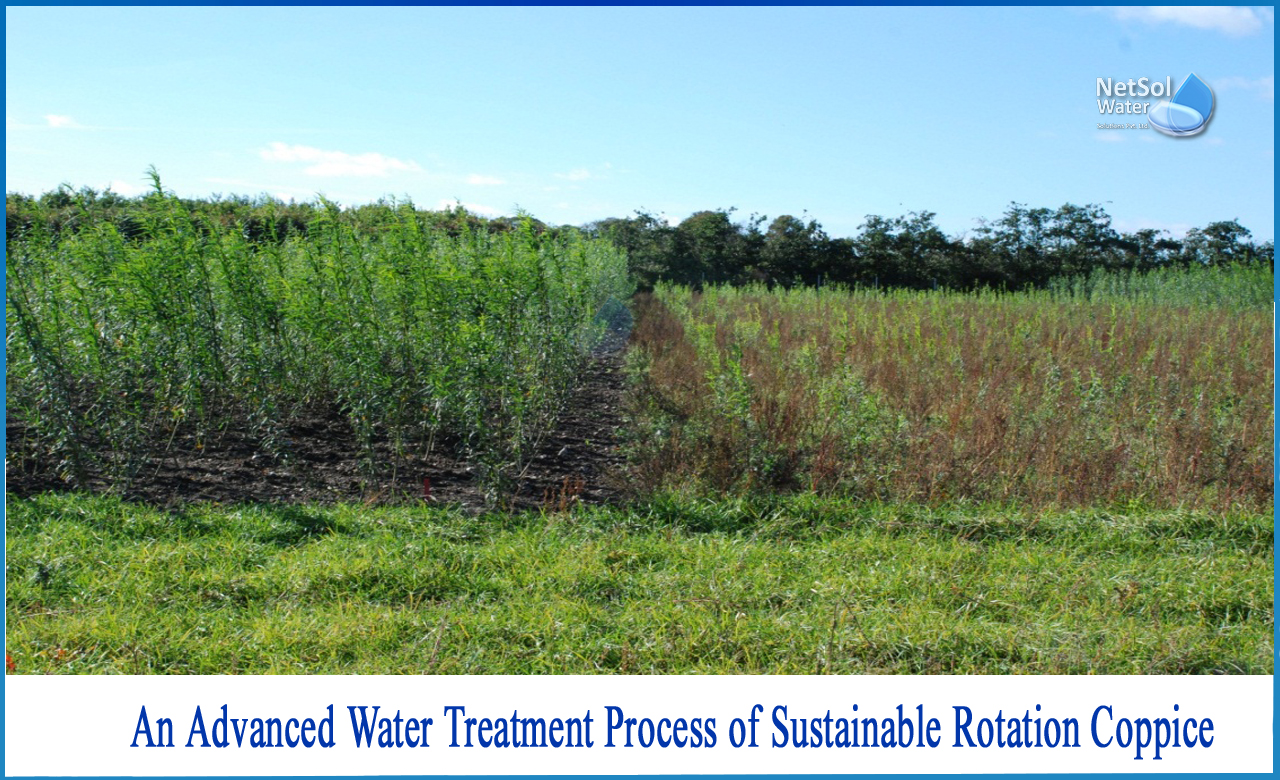What is a SRC in Water Treatment Process?
SRC (Short Rotation Coppice) is an agricultural technique for cultivating trees that develop quickly. The ability of SRC species to sprout from their roots after harvesting is their most distinguishing feature. The biological activity in the soil purifies the wastewater, and the plants can absorb nutrients, therefore these plantations can be used to clean pre-treated residential wastewater. Traditional irrigation techniques can be used to disperse the effluent across the crops. This can boost the trees' production by up to 100%.
Advantages of Short Rotation Coppice
· Provides farmers with a secondary source of income.
· This is a low-tech system.
· Supporting rural development that is long-term.
· Fuel production from renewable biomass.
Operation and maintenance of Short Rotation Coppice
The essential requirement for this treatment method is “land”. In India, cost-effectiveness can be achieved with completely mechanical planting and harvesting systems as soon as 5 hectares are planted. Manually planting and harvesting an SRC is also an option. As seedlings, tree nursery cuttings are necessary. Up to 12,000 trees such as willows, popular, or eucalyptus can be produced on one hectare. A drip irrigation system and a slurry pump are required for wastewater distribution. A mechanical pre-treatment would be required before the effluent enters the system to filter and prevent clogs. SRC requires normal farmer abilities such as plant understanding, fertiliser knowledge, irrigation expertise, and familiarity with agricultural machinery.
An advanced water treatment process of Sustainable Rotation Coppice (SRC)
Sustainability issues are becoming more significant in the discussion about bioenergy as demand for biomass for energy and biobased goods grows. The creation and use of SRC can be a measure to improve overall sustainability, but only if various factors are taken into account. SRC cultivation is, by definition, a low-input agricultural method with minimal GHG emissions, not only because of the restricted chemical applications, but also because the crops are farmed for a long time with few management inputs. Pesticide use is minimal, if not, non-existent in most circumstances.
In comparison to typical agricultural crops, the usage of fertilisers is limited: tree fertilisation is not widespread, and the crops are perennial and cultivated for several years before harvest, using nutrients recycled in the soil-plant system from falling leaves and root die-off.
Even when “N fertilisation” is considered, such as in the case of willow SRC, the suggested amounts (about 80 kg N per hectare and year) are substantially lower than for other common agricultural crops.
Furthermore, when the density of the plantations is great, as in the case of willow and poplar SRC, fertilisation equipment does not allow for fertilising every year due to technical limits and physiological reasons (e.g., tree height).
Sustainable SRC and its environmental impacts
In general, SRC has several favourable environmental impacts because to its low input requirements compared to annual crops. In general, the danger of unfavourable environmental consequences is relatively low.
Conclusion: SRC needs to managed sustainability
SRC can provide large synergies with other agricultural methods, ecosystem services, and environment protection efforts if managed sustainably. SRC typically aids in improving water quality, increasing biodiversity, providing ecosystem services (hunting, beekeeping, water supply, and fire protection), preventing erosion, reducing artificial input materials (fertilisers, pesticides), and mitigating climate change through carbon storage. These benefits must be pushed in order to create sustainable woodchips from SRC, hence boosting SRC's environmental benefits. Aspects of sustainability must be considered as a result: SRC has the greatest favourable effects on marginal soils and, in particular, as structural features in the landscape, such as fields, highways, and power lines.
Netsol Water is Greater Noida-based leading water & wastewater treatment plant manufacturer. We are industry's most demanding company based on client review and work quality. We are known as best commercial RO plant manufacturers, industrial RO plant manufacturer, sewage treatment plant manufacturer, Water Softener Plant Manufacturers and effluent treatment plant manufacturers. Apart from this 24x7 customer support is our USP. Call on +91-9650608473, or write us at enquiry@netsolwater.com for any support, inquiry or product-purchase related query.



